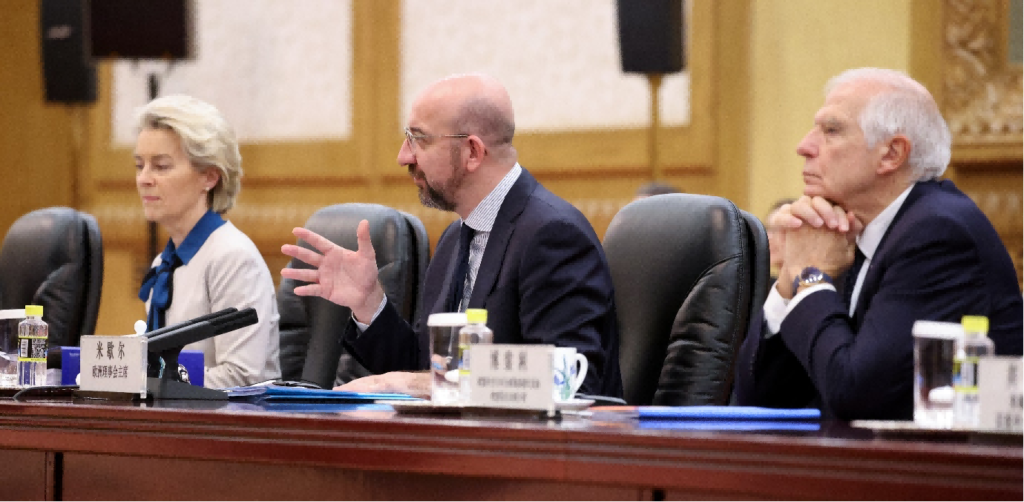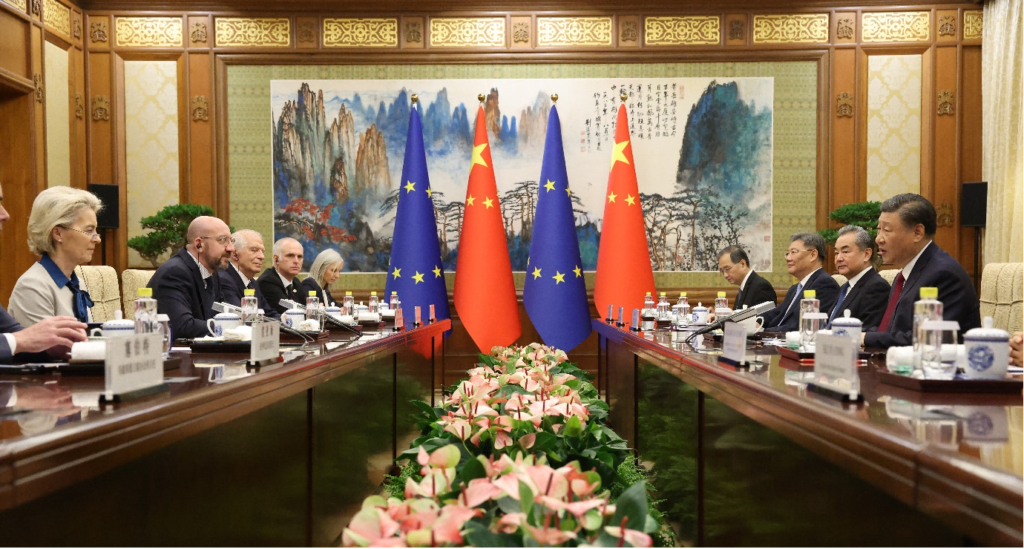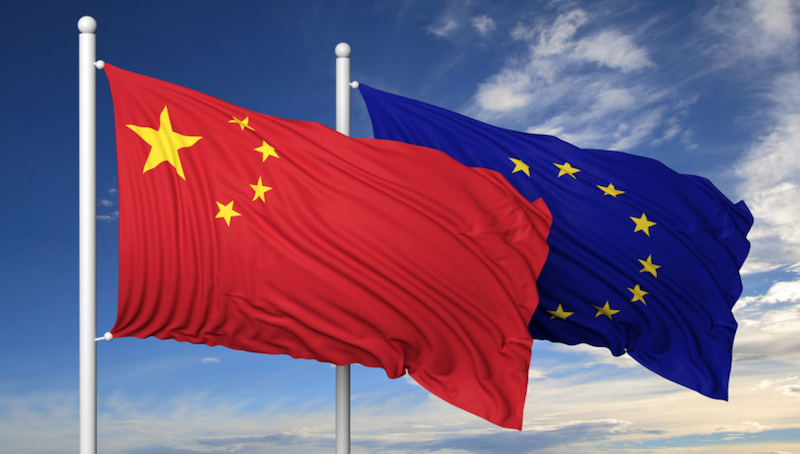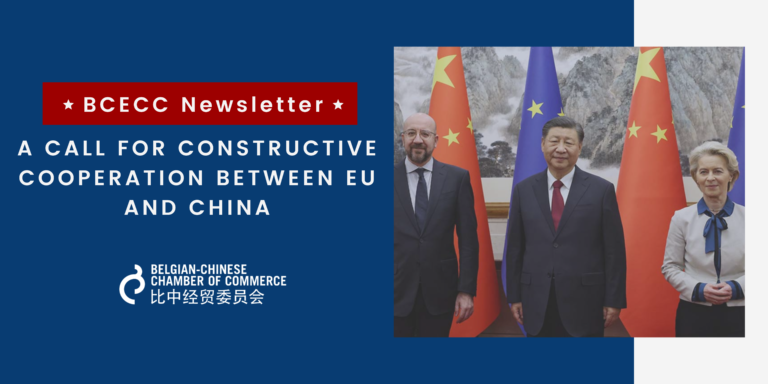On 7 December 2023, the 24th EU-China summit took place in Beijing, the first in-person summit in 4 years. The EU was represented by the President of the European Council, Charles Michel and the President of the European Commission, Ursula von der Leyen, who were both accompanied by High Representative Josep Borrell. China was represented by President Xi Jinping and Premier Li Qiang.

版权所有:欧盟
A historical perspective
The year 2023 marks the 20th anniversary of the ‘Comprehensive Strategic Partnership’ between Europe and China. After China officially joined the WTO on 11 December 2001, the European Commission negotiated a cooperation framework with China, which led to the signing of the EU-China Comprehensive Strategic Partnership on 10 September 2003.

版权所有:欧盟
At the moment of the signing of the EU-China Comprehensive Strategic Partnership in 2003, China was already an important economic player, not only for multinational companies, but increasingly for Belgian small and medium-sized companies as well. However, China hardly featured in the European and transatlantic foreign policy debate.
Nobody will deny that China’s economic achievements since the early 2000s have been truly remarkable. In 2001, China was the 6th largest economy and the 6th biggest exporter of goods in the world. Just 8 years later, in 2009, it grew into the world’s largest goods exporter. The country’s rapid economic growth has driven per capita income to the level of an upper-middle income country. China is currently the second-largest economy globally and is now also a major global player on the technological, military and geopolitical level.

版权所有:欧盟
Today’s situation
This Partnership was intended to elevate EU-China relations beyond ordinary trade and investment topics, but additionally to address some of the world’s most pressing political and security challenges. However, the past years have been quite challenging, resulting in many objectives of the strategic partnership failing to be materialized.
Different political values, diverging geopolitical interests and priorities, and competing conceptions of world order have limited the scope and depth of this ambitious EU-China strategic relationship. Today’s EU-China relations are often contested, uneven and still mostly focused on trade and investments only. As China’s economic, military and political power continues to expand, the EU will need a new conceptual framework towards Beijing. This framework must search for a balance between, on one side, facilitating cooperation on issues and policies in which there is real potential for mutual gain, but at the same time also effectively manage the inevitable tensions and disagreements that arise.

China’s viewpoint
The relations between Europe and China are showing an upward momentum, with frequent high-level exchanges and increasing consensus on cooperation, which has pointed out the direction for practical cooperation in various fields. From a Chinese perspective, it was emphasized that, as the world’s major economies, China and the EU share common responsibilities in tackling global challenges. China and the EU should strengthen dialogue and coordination, build consensus, handle differences properly, and overcome barriers to promote cooperation. Our common interests far outweigh our differences and there are more areas of cooperation than competition between us. China and Europe are, first and foremost, partners.
Given the differences between China and Europe in history, culture, ideology and development stage, it is only natural that we see many things differently. But that does not make us rivals, systemic or otherwise. Together, we can nurture new growth drivers in digital economy, green development and environment protection, new energies, artificial intelligence and connectivity, while keeping industrial and supply chains secure, stable, and reliable. Going forward, China is committed to reform and opening up, and promotes high-quality development.
The EU perspective
According to President Charles Michel at the press conference following the summit, the EU and China are major economic partners and global powerhouses. “We trade over €2 billion in goods every day, but the EU has a trade deficit of almost €400 billion. We need to make our trade and economic relationship more balanced and reciprocal.”
Despite their different political and economic systems, the EU and China have a shared interest in pursuing constructive and stable relations, anchored in respect for the rules-based international order, balanced engagement and reciprocity.
The European Union and China continue to be important trade and economic partners. The European Union seeks to ensure a level playing field, so that the trade and economic relationship is balanced, reciprocal and mutually beneficial. The European Union will continue to reduce critical dependencies and vulnerabilities, including in its supply chains, and will de-risk and diversify where necessary and appropriate. The European Union does not intend to decouple from China or to turn inwards.
Please contact the Belgian-Chinese Chamber of Commerce (BCECC) in case you need more information.
